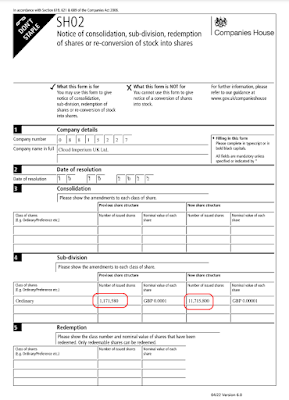On Wednesday evening Blizzard Entertainment announced the suspension of services for most of its catalog of games in the People's Republic of China.
IRVINE, Calif.--(BUSINESS WIRE)--Blizzard Entertainment, Inc. announced today that it will be suspending most Blizzard game services in mainland China due to the expiration of the current licensing agreements with NetEase, Inc. on January 23, 2023. This includes World of Warcraft®, Hearthstone®, Warcraft® III: Reforged, Overwatch®, the StarCraft® series, Diablo III®, and Heroes of the Storm®. Diablo Immortal® co-development and publishing is covered under a separate agreement between the two companies.
Blizzard Entertainment has had licensing agreements with NetEase since 2008, covering the publication of these Blizzard titles in China. The two parties have not reached a deal to renew the agreements that is consistent with Blizzard’s operating principles and commitments to players and employees, and the agreements are set to expire in January 2023.
We will suspend new sales in the coming days and Chinese players will be receiving details of how this will work soon. Upcoming releases for World of Warcraft: Dragonflight, Hearthstone: March of the Lich King, and season 2 of Overwatch 2 will proceed later this year.
“We’re immensely grateful for the passion our Chinese community has shown throughout the nearly 20 years we’ve been bringing our games to China through NetEase and other partners,” said Mike Ybarra, president, Blizzard Entertainment. “Their enthusiasm and creativity inspire us, and we are looking for alternatives to bring our games back to players in the future.”
Notably, the latest collaboration between Blizzard and NetEase, Diablo Immortal, falls under a separate agreement and service will continue uninterrupted.
Blizzard has faced switching publishers in China at the end of a contract before. In 2009, Blizzard switched from The9, the original publisher in the PRC, to NetEase following The9's failure to receive approval from the General Administration of Press and Publications (GAPP) for the Wrath of the Lich King expansion.
SHANGHAI, Apr 16, 2009 (BUSINESS WIRE) -- Blizzard Entertainment, Inc. and NetEase.com, Inc. (NASDAQ: NTES) today announced that Blizzard Entertainment(R)'s World of Warcraft(R) will be licensed to an affiliated company of NetEase.com, Inc. in mainland China for a term of 3 years following the expiration of the current license agreement.
Both companies announced a partnership on Blizzard Entertainment's Warcraft(R) III,StarCraft(R) II, and Battle.net(R) gaming platform last summer. Today's announcement further enhances the partnership between Blizzard Entertainment and NetEase and promotes a consistent level of quality and service in mainland China for all Blizzard Entertainment games involved in the partnership.
"We appreciate the enthusiasm that Chinese gamers have shown us over the years, and we've always worked hard, in collaboration with our partners, to ensure that these players receive the same high-quality service and gameplay experiences that we deliver in other regions," said Mike Morhaime, CEO and cofounder of Blizzard Entertainment. "This new agreement with NetEase will support that goal for years to come, and we look forward to collaborating with them on a smooth transition for World of Warcraft moving forward."
"We are excited to be working with Blizzard Entertainment now on World of Warcraft in addition to Warcraft III, StarCraft II, and Battle.net," stated William Ding, CEO of NetEase. "By combining Blizzard Entertainment's expertise in developing world-class games with NetEase's strength in online-game operation in China, I am confident that we will be able to deliver the best gaming experiences in the world to our players."
Of course, the new deal also increased Blizzard Entertainment's bottom line.
According to Wedbush Morgan analyst Michael Pachter, the new contract with NetEase substantially increases Activision Blizzard's royalty rate on revenues from WoW in China. He estimates that with The9, Activision Blizzard collected a 22 percent royalty rate that translates into $50-$55 million annually based on recent subscriber figures. "Although the terms of the new arrangement were not disclosed, we estimate that the royalty rate will increase to at least 55%, and that the new arrangement will generate revenues of over $140 million annually,"
However, only allowing for two months to transfer publishing rights from The9 and NetEase was not enough to prevent a break in service. NetEase became embroiled in a bureaucratic battle between the GAPP and PRC's Ministry of Culture which prevented operation of the game. Despite acquiring the rights to publish WoW in April 2009, NetEase did not receive approval to operate The Burning Crusade, much less Wrath of the Lich King, in the PRC until February 2010. The Wrath of the Lich King finally launched in China on 31 August 2010.
The lengthy approval process for western video games to resume operation in the People's Republic after switching publishers still occurs. In July 2018, CCP Games, operator of EVE Online, switched publishers from Tiancity to NetEase, with NetEase to take over operations on 1 October 2018. But NetEase did not receive approval to operate EVE in the PRC until March 2020. The game relaunched in April 2020.
Given the previous examples of Blizzard's change of publishers for World of Warcraft in 2009 and CCP Games switch in publishers for EVE Online in 2018, we should expect some news of a new Chinese publisher for most of Blizzard's game catalog sometime in the next two weeks. But as for the ability of Chinese players to access their current accounts? Optimistically, that is months away.



